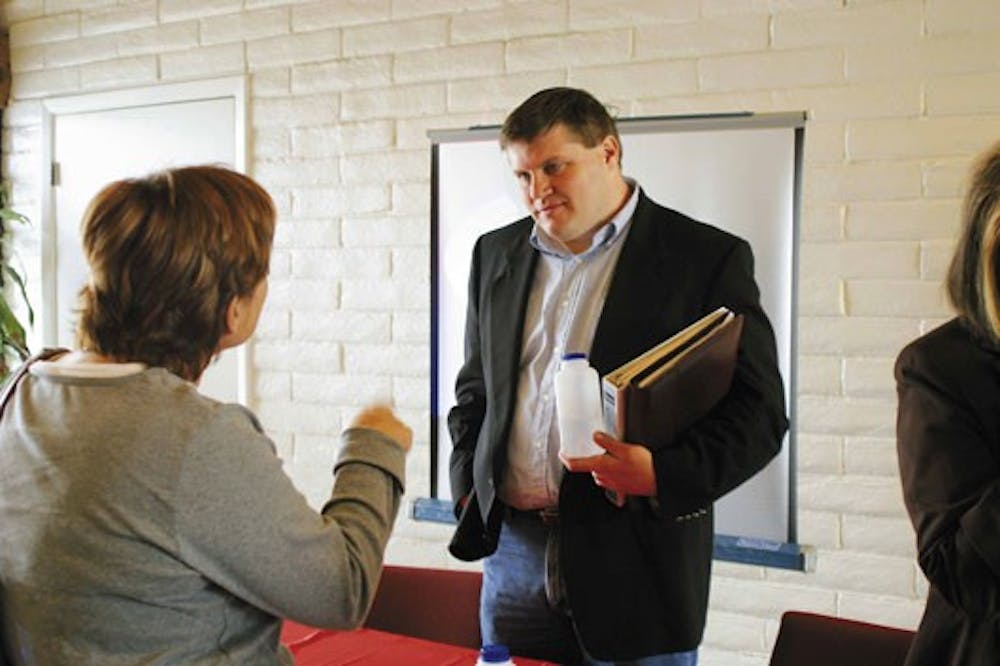by Abigail Ramirez
Daily Lobo
As Election Day nears, paying an extra 18 cents for a $100 item has become a topic of debate.
The Quality of Life tax could make Albuquerque unique, said Judy Anderson, who spoke in favor of the tax at a debate Saturday.
"One of the things that makes this city livable is our cultural activities," she said. "There are jillions of towns with beautiful weather, low wages and lower taxes, but they don't have all of the rest of the stuff that we have here."
Get content from The Daily Lobo delivered to your inbox
The tax will be voted on in the general elections on Nov. 7.
The tax would add 18.75 cents to the gross receipts tax on a $100 purchase. It is expected to generate $30 million per year, Anderson said.
The debate, held at the Courtyard at Cutler clubhouse, was sponsored by the League of Women Voters.
The tax would fund cultural programs and activities such as concerts and art exhibits that are open to the public and are provided by non-profit or publicly owned cultural organizations and institutions.
Quentin Chandler, vice president of business advocacy and government relations at the Greater Albuquerque Chamber of Commerce, spoke against the tax.
He said voters need to think about where the money will come from.
"A family of about $40,000 income would pay about $40 in additional GRT (gross receipts tax)," he said. "That's $40. If you ask them, 'Do you want to go fork it over?' They will say, 'Well, you know, we will probably apply that to some bills.'"
If approved, the tax will go into effect on July 1, 2007.
A cultural advisory board would then be appointed by the Bernalillo County Commission to oversee the distribution of this tax money.
Meetings by this board would be open to the public, Anderson said.
With this tax, organizations can only ask for an amount of up to one-third of their income, Anderson said.
Organizations will have to submit a proposal before receiving the money, she said.
Chandler said the language of the bill raises concerns.
"If you have such slack and such few assurances, it does raise questions," he said. "And you do wonder what kind of profit will be given out."
If organizations have this money, it can help them stay open and provide free services for the community, Anderson said.
The University would not be a beneficiary of this tax, but entities within UNM would, Anderson said.
Such entities would include Jonson Gallery and the Tamarind Institute, she said.
Anderson said the funding could help push Albuquerque to be identified as a cultural center.
"I really do believe that this initiative could catapult us into another artistic level of accomplishments, both for the individual companies and for the city and county alike," she said. "I think people would be talking about Albuquerque the way they talk about Santa Fe."






